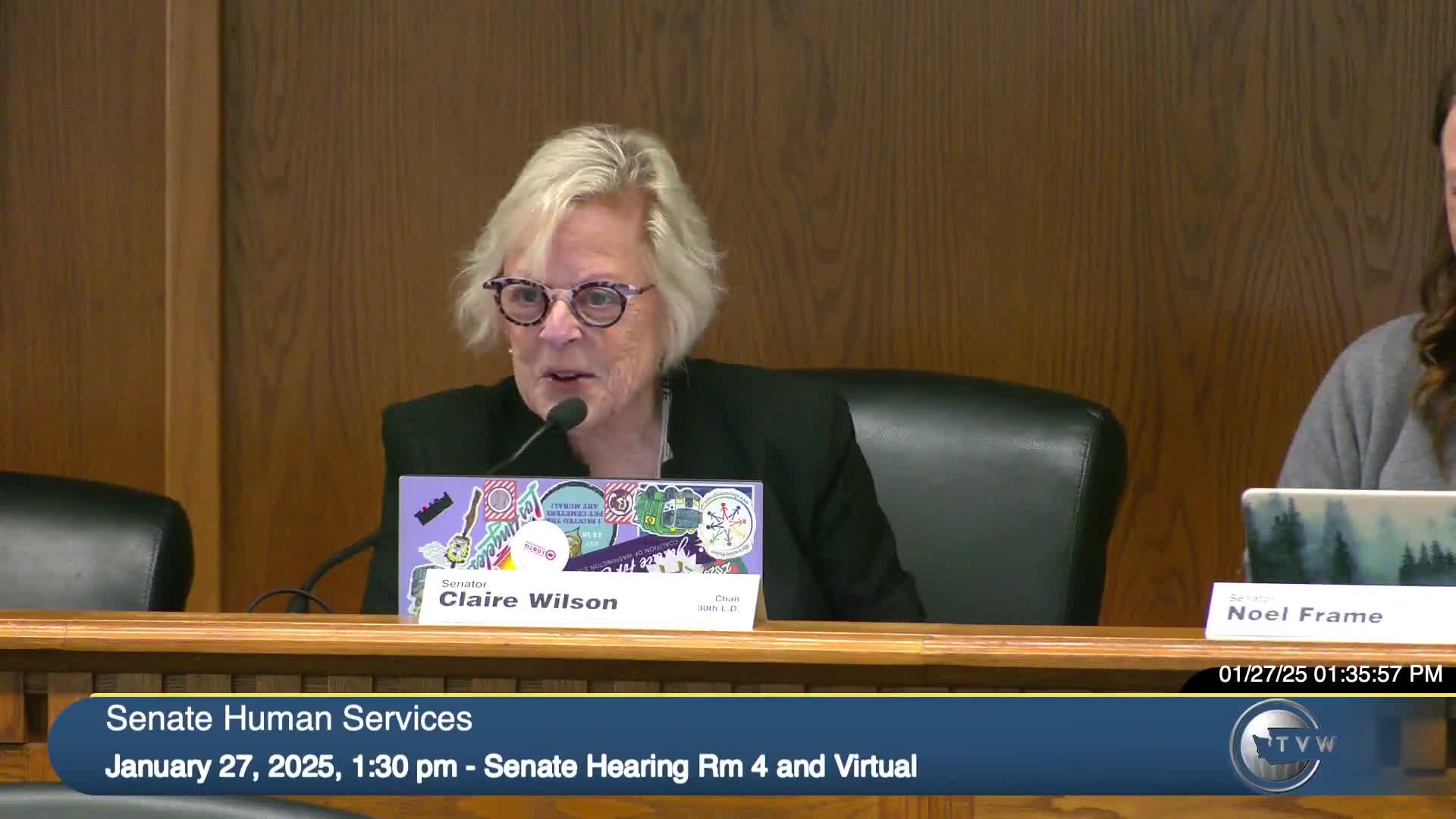Committee hears testimony on bill to make inmate phone and electronic communications free
Get AI-powered insights, summaries, and transcripts
Subscribe
Summary
Senate Bill 5231, the "Connecting Families" proposal, would require free voice communications for people confined in state facilities, prohibit commissions and fees and require provision and replacement of free tablets and accessories; the committee heard staff briefings, fiscal estimates and multiple public testimonies in support.
Senate Bill 5231 would require the Department of Corrections and the Department of Children, Youth and Families to provide free voice communication services and would prohibit commissions and transaction fees on communications services, staff told the Senate Human Services Committee. Kelsey Ann Fung, staff to the committee, briefed the proposed substitute and its key provisions.
The bill's sponsor, Senator Drew Hansen (23rd Legislative District), described the measure as the "Connecting Families Act" and said it "will make it free for people in prison to stay in touch with their families." He and witnesses framed the proposal as a public-safety and reentry measure that removes financial barriers to family contact.
Staff explained the bill's main provisions: require DOC and DCYF to provide free voice communications and free tablets and necessary accessory devices (chargers, headphones, microphones) and to replace inoperative devices within seven days; prohibit commissions and fees; prohibit using communication services to supplant in-person visitation; and require additional contract transparency and data posting in housing units and law-library computers. The substitute would take effect Dec. 1, 2025.
The staff briefing noted existing contracts with Securus Technologies for phone, email, video visits and electronic media services. Staff described the incarcerated-individual betterment fund as primarily funded by commissions from telecom and electronic media services; expenditures from the fund include family-visit expenses, children's visiting-room supplies, law library books and recreation and hobby costs. Staff said 25% of funds are dedicated to the crime victim compensation fund. The briefing also cited a pending Federal Communications Commission order that will cap per-minute rates, eliminate transaction fees and bar commissions beginning Jan. 1, 2026, subject to pending appeal in the First Circuit.
Public testimony largely supported the bill. Kelly Olsen, policy manager for Civil Survival and a formerly incarcerated person, testified in strong support and tied free communications to reduced recidivism and improved reentry outcomes. Multiple formerly incarcerated people and family members described financial hardship created by phone and video fees and urged the committee to remove the cost barrier. "Free phone calls are also vital for connecting to advocacy organizations to help prepare individuals for successful reentry," Kelly Olsen said.
Advocates highlighted fiscal figures staff provided: Department of Corrections estimates annual phone costs of $5,150,000, email costs of $3,120,000, and an estimated loss of commission revenue of $1,600,000 for FY 2026 and $2,700,000 per year thereafter to the incarcerated-individual betterment fund; staff also noted that some of these fiscal impacts would be similar under the FCC order that bars commissions. Proponents said the state already budgets for some costs and that the bill would align state policy with public-safety goals.
Speakers also raised contract and privacy concerns. Raymond Williams of Justice Solutions and other witnesses described data collection practices in contracted communications platforms, saying vendors may collect and sell biometric and financial data from users and families; witnesses urged eliminating the need for families to use vendor platforms that collect such data by moving to free services provided by the state.
No committee vote on SB 5231 is recorded in the hearing transcript; the committee continued to the next items after extensive public comment and staff discussion.
